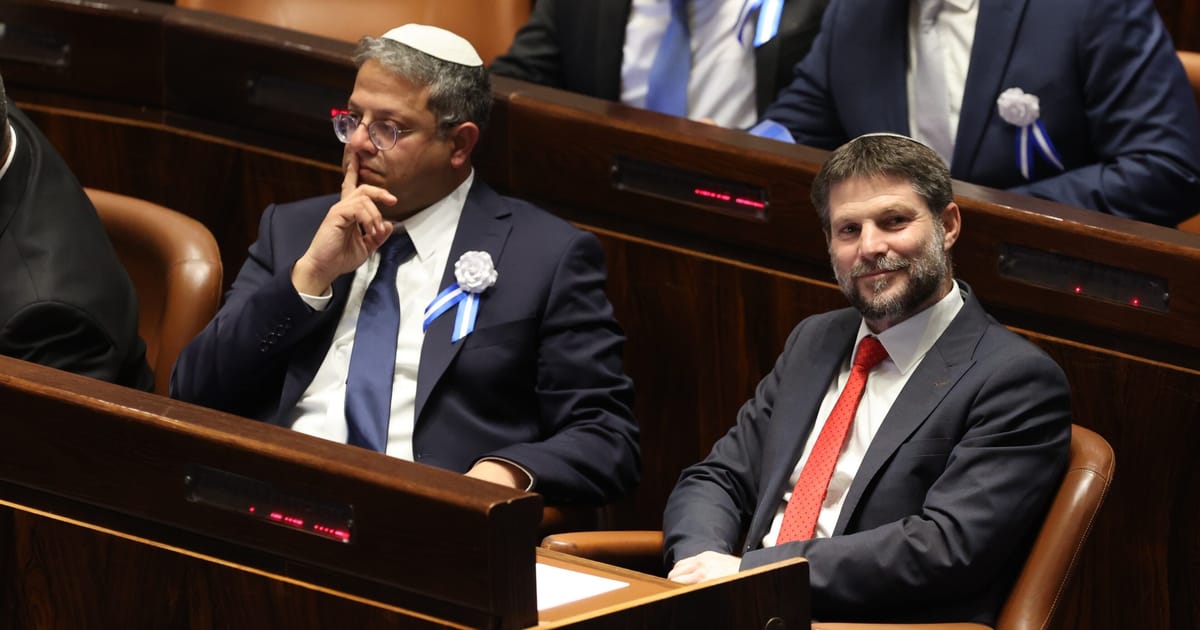

In a world yearning for peace, the spirit of humanitarian aid thrives even amid complex geopolitical tensions. Recent developments concerning the ongoing situation in Gaza provide a compelling picture of international responses and their ramifications, underscoring both the challenges and the resilience of those involved.
In the Netherlands, a noteworthy political decision unfolded as the Dutch government declared two Israeli ministers, Bezalel Smotrich and Itamar Ben-Gvir, as personae non gratae. This decision stems from their perceived advocacy for policies that have been criticized on the international stage. The move reflects the broader debate about human rights and ethical governance, marking a significant diplomatic stance that aligns with global advocacy for peaceful and just resolutions.
Meanwhile, on the domestic political front in the UK, Labour Party leader Keir Starmer faces a delicate balancing act. While rejecting what he describes as “gesture politics,” Starmer’s cautious approach towards recognizing Palestinian statehood places him at odds with some of his backbenchers, who express concern over the party’s electoral prospects. This scenario highlights the complex dynamics politicians navigate in responding to international affairs, balancing moral imperatives with political strategy.
In Australia, a pro-Palestine protest group is poised to engage in legal action after authorities blocked their planned march across Sydney Harbour Bridge. The protesters are seeking a route to the US consulate to express their convictions, demonstrating the ongoing global resonance of the Gaza conflict. Despite the logistical and safety concerns cited by the police, the group remains committed to their cause, reflecting a broader call for solidarity and justice.
On the humanitarian front, the World Food Programme has highlighted the urgent need for extensive food aid in Gaza to avert a deepening crisis. Warnings have been issued, drawing parallels to historic famines in Ethiopia and Nigeria. The call for immediate and unobstructed aid underscores the pressing humanitarian needs amid ongoing conflict, reminding the international community of its shared responsibility to prevent suffering.
At the same time, aid efforts are making strides as trucks carrying 1,300 tons of humanitarian relief are en route to Gaza, originating from Egypt. This initiative marks a collaborative effort to alleviate the dire conditions facing civilians in the enclave, with aid passing through established checkpoints for inspection by Israeli authorities. It represents a beacon of hope, albeit tempered by the complexities of conflict and control.
Hearing the tragic stories from the region, such as the recent loss of Awdah Hathaleen, a Palestinian activist involved in the Oscar-winning documentary “No Other Land,” underscores the personal and profound impacts of the ongoing tensions. The killing occurred during an altercation with Israeli settlers, igniting further discourse on safety, accountability, and the human cost of geopolitical strife.
Across the Atlantic, U.S. political discourse sees 21 Senate Democrats urging former President Donald Trump to sever funding to a contentious Gaza aid organization. This collective demand addresses grave concerns over alleged harm caused by the organization’s operations, which have been criticized for blurring lines between humanitarian aid and military actions. This situation brings to light the intricacies of aid distribution during conflict and the moral imperatives tied to such humanitarian endeavors.
As these narratives unfold, they collectively remind us of the deep interconnections between policy, humanitarianism, and the lived experiences of people affected by conflict. They emphasize the importance of mindful action, diplomacy, and compassion as we navigate and respond to global crises.
Source: {link}
